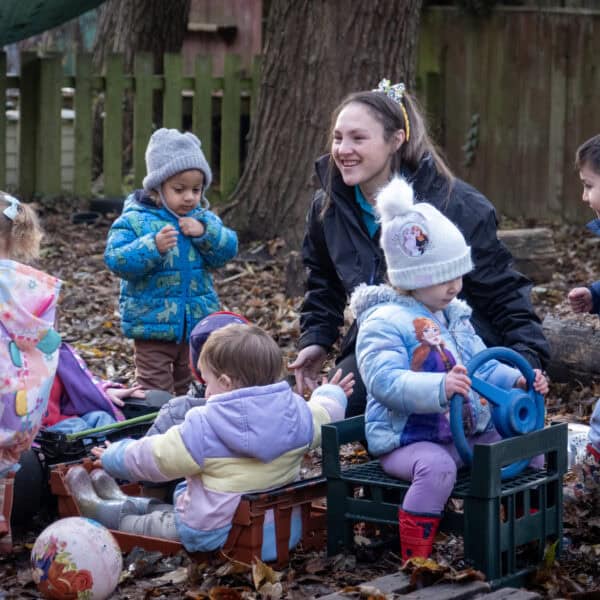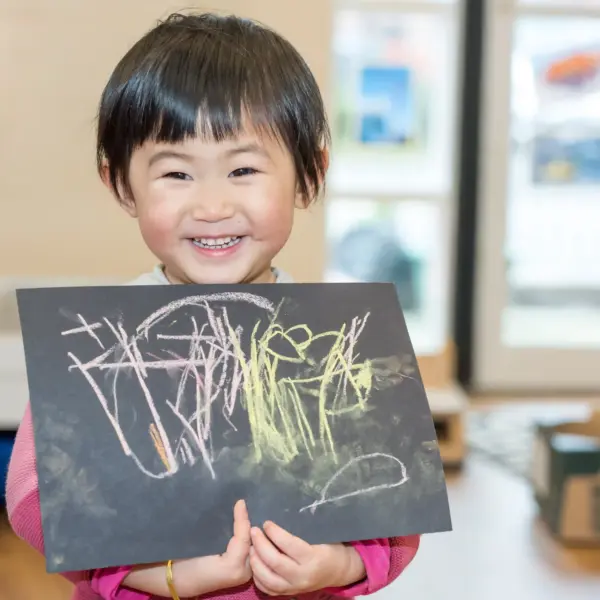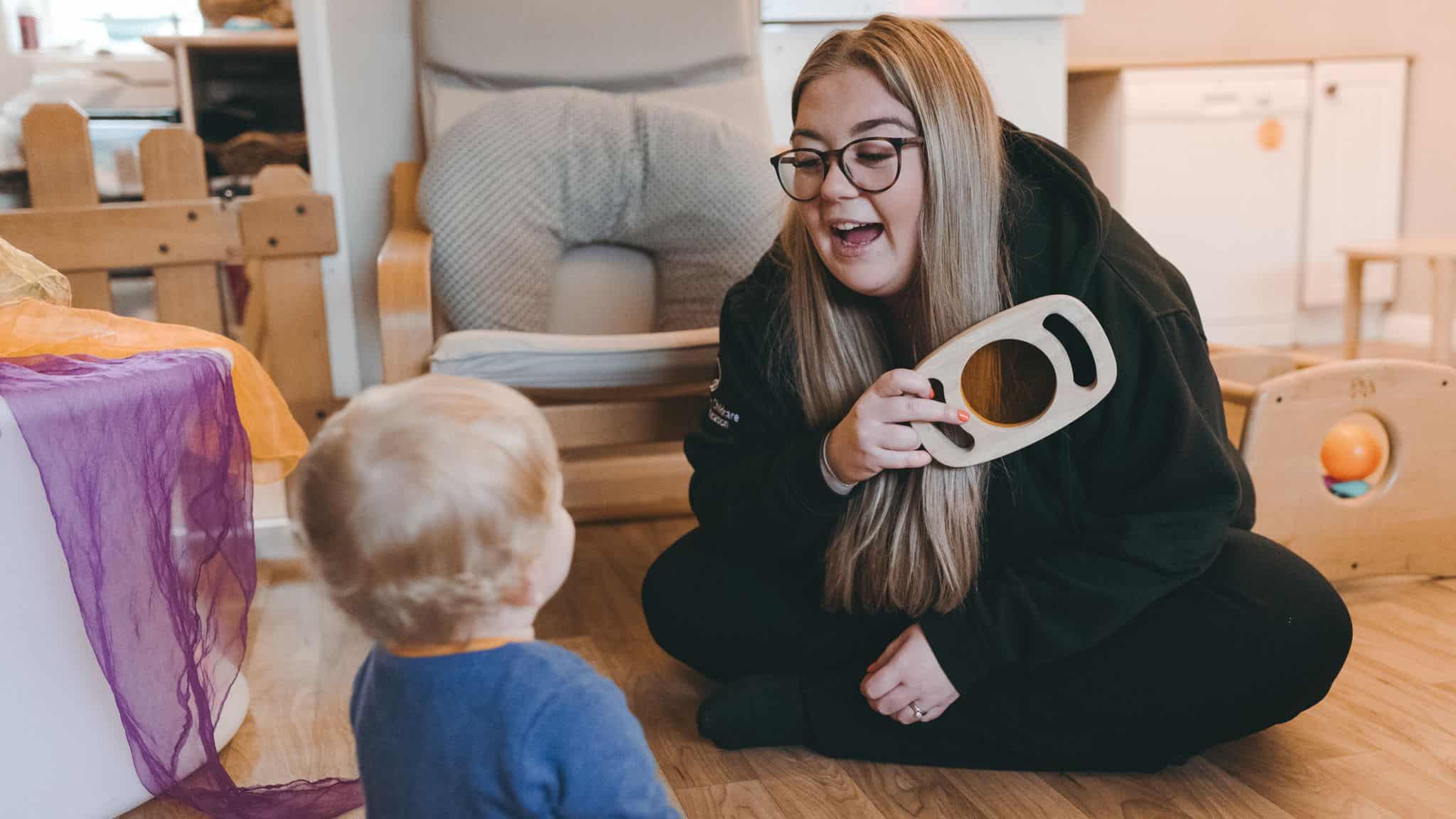This website uses cookies so that we can provide you with the best user experience possible. Cookie information is stored in your browser and performs functions such as recognising you when you return to our website and helping our team to understand which sections of the website you find most interesting and useful.
Last Updated on April 7, 2025
Child Development Stages: What to Expect in the Early Years
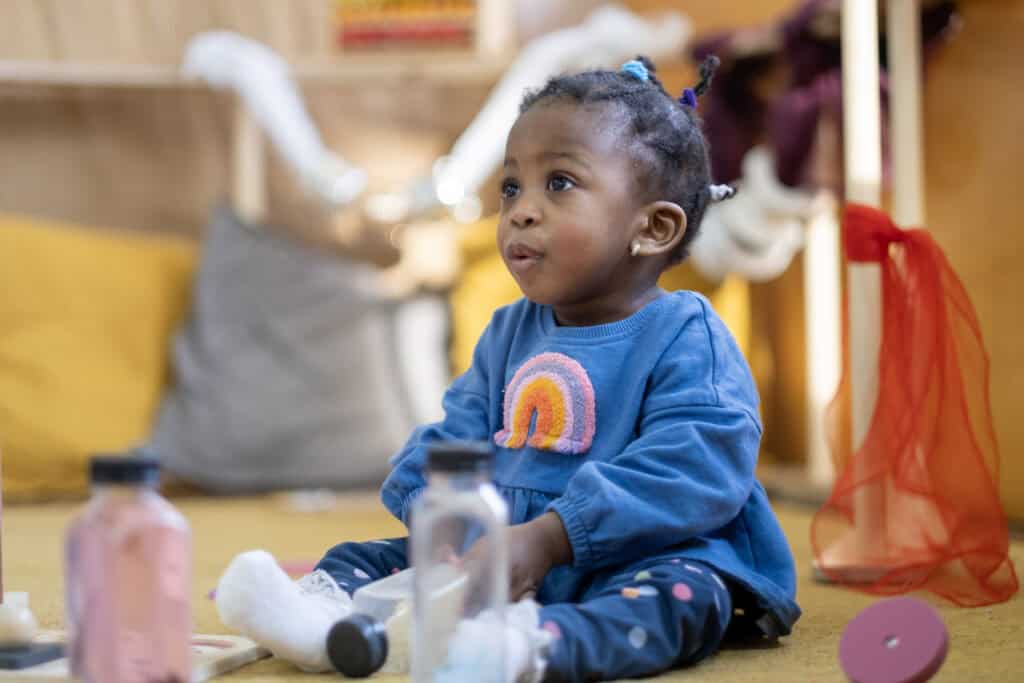
Child development is a remarkable journey of growth and discovery that unfolds in the first five years of life. At Thrive Childcare, we witness these incredible transformations daily across our nurseries, and we understand how crucial it is for parents to recognise and support these developmental stages. This comprehensive guide will walk you through the key milestones of early childhood development and explain how we nurture these developments in our nursery settings.
The Foundation of Early Development
Child development occurs across four primary domains: physical, cognitive, social-emotional, and language development. These areas are deeply interconnected, with progress in one domain often supporting advancement in others. For instance, when a child learns to walk (physical development), they gain new opportunities for exploration, which enhances their cognitive development and social interactions.
Development from Birth to 12 Months
The first year of life brings dramatic changes in every developmental domain. During this period, babies transform from dependent newborns into increasingly mobile and communicative individuals.
Physical Development
In the first year, babies progress through a remarkable sequence of physical developments. They begin by gaining control of their head and neck muscles, then learn to roll over, sit independently, crawl, and often take their first steps. At Thrive, we support this development through:
- Tummy time sessions that strengthen neck and core muscles
- Safe spaces for rolling and crawling exploration
- Supportive furniture at different heights to encourage pulling up and cruising
Cognitive Development
Babies are natural scientists, constantly experimenting with their environment. They learn about object permanence (understanding objects exist even when hidden), cause and effect, and basic problem-solving. Our nurseries provide:
- Peek-a-boo games to develop object permanence
- Simple cause-and-effect toys like rattles and music-makers
- Safe household items for exploration and discovery
Social-Emotional Development
The foundation of emotional security and social connections formed during this period. Babies develop attachment to caregivers, begin to show distinct personalities and learn to read basic emotional cues. We support this through:
- Consistent, responsive caregiving
- Mirror play to develop self-awareness
- Interactive games and songs that encourage social engagement
Language Development
From early coos and babbles to first words, language development accelerates rapidly. We nurture this through:
- Regular conversations during care routines
- Songs, rhymes, and simple stories
- Responsive interactions that encourage vocalisation

The Toddler Years (1-3 Years)
The toddler period brings explosive growth in independence and personality development. This stage often challenges parents but presents incredible opportunities for learning and development.
Physical Development
Toddlers refine their gross and fine motor skills significantly. They progress from wobbly first steps to running, climbing, and beginning to navigate stairs. Fine motor skills develop through:
- Art activities like finger painting and large crayon drawing
- Manipulation of blocks and large puzzle pieces
- Practice with feeding utensils and cups
Cognitive Development
Toddlers begin to understand symbols, categorize objects, and engage in pretend play. Their memory improves, and they start to understand basic concepts like size and shape. We support this through:
- Well-equipped dramatic play areas
- Sorting and matching activities
- Simple counting games and number songs
Social-Emotional Development
This period brings significant emotional growth, including:
- Development of self-awareness and early empathy
- Beginning of peer relationships
- Growing independence and self-assertion
We support these developments through:
- Guided social interactions
- Clear, consistent boundaries
- Recognition and naming of emotions
- Opportunities for supervised independence
- Self regulation opportunities
Language Development
Language abilities typically explode during this period. Toddlers progress from single words to simple sentences and begin to understand complex instructions. Our nurseries foster language development through:
- Rich conversational environments
- Story times with discussion
- Songs and movement activities
- Labeling objects and actions throughout the day
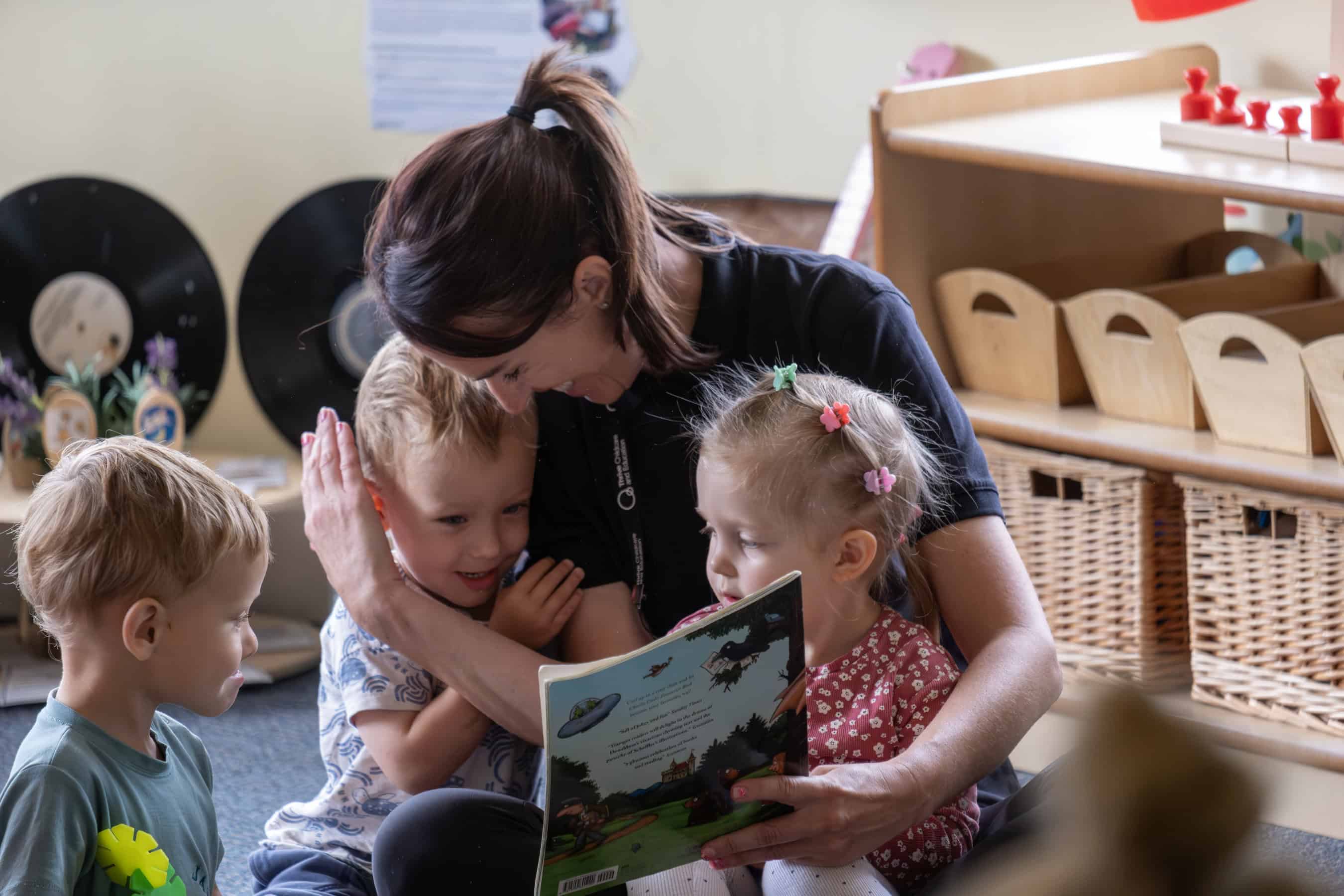
Preschool Years (3-5 Years)
The preschool period brings remarkable refinement of earlier skills and the emergence of more sophisticated abilities.
Physical Development
Preschoolers develop increasingly complex physical skills:
- Refined gross motor skills like hopping, skipping, and ball games
- Advanced fine motor skills enabling drawing, early writing, and self-care
- Improved balance and coordination
We provide:
- Structured physical activities and games
- Materials for developing hand strength and coordination
- Opportunities for outdoor play and exploration
Cognitive Development
This stage brings significant advances in thinking and problem-solving:
- Enhanced memory and attention span
- Beginning understanding of time and sequence
- Early mathematical concepts
- More complex pretend play
Our curriculum includes:
- Problem-solving activities and puzzles
- Science experiments and nature exploration
- Mathematical games and counting activities
- Extended pretend play scenarios
Social-Emotional Development
Preschoolers develop more sophisticated social skills and emotional understanding:
- Cooperative play with peers
- Understanding of others’ perspectives
- More complex emotional regulation
- Development of early friendships
We support this through:
- Group projects and activities
- Conflict resolution guidance
- Emotional literacy activities
- Opportunities for collaborative play
Language Development
Language abilities become increasingly sophisticated:
- Complex sentence structures
- Enhanced vocabulary
- Beginning narrative skills
- Early literacy awareness
Our program includes:
- Regular reading and discussion
- Writing and drawing opportunities
- Language-rich play scenarios
- Phonological awareness activities
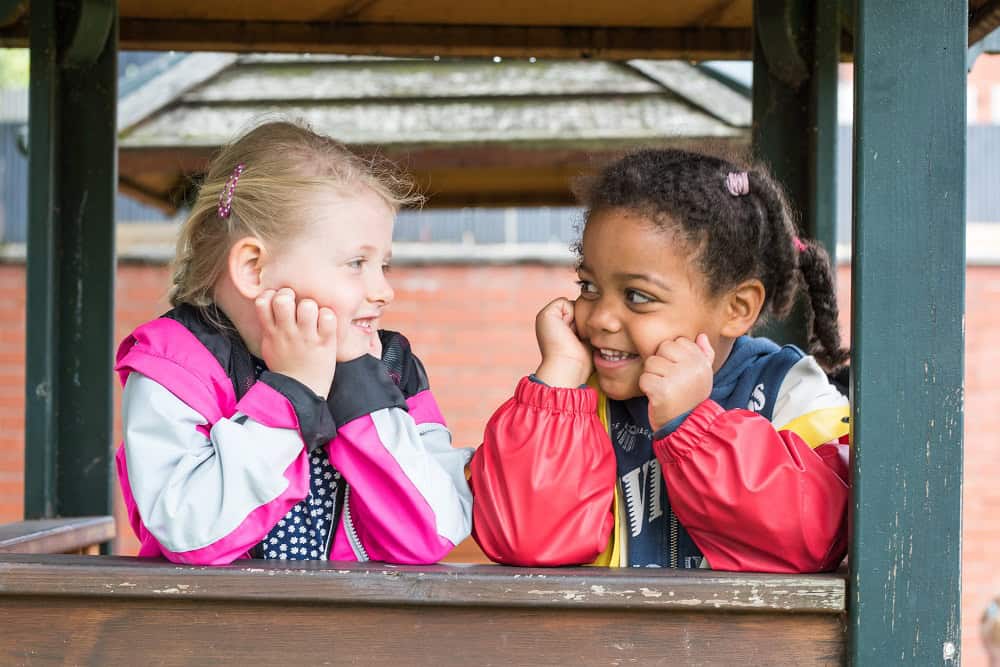
Supporting Individual Development
At Thrive Childcare, we celebrate the uniqueness of every child’s developmental journey. We understand that while the sequence of development is generally consistent, the pace can vary widely from one child to another. Our dedicated and experienced staff take a personalised approach to support each child’s growth by:
- Observing and documenting each child’s developmental milestones to gain insights into their unique strengths and needs.
- Planning engaging activities that align with and enhance their current interests and developmental levels.
- Adapting support to meet individual needs, recognising that every child learns and grows differently.
- Maintaining open communication with parents, sharing regular updates and insights about their child’s progress.
Our goal is to create an environment where every child feels supported, confident, and empowered to achieve their potential.
The Role of Play in Development
Play is at the heart of early childhood learning and is an essential building block for development. Through carefully designed play experiences, children at Thrive Childcare can:
- Hone and refine skills, such as problem-solving, coordination, and creativity.
- Express and process emotions, helping them build emotional resilience.
- Develop social competencies through interaction and cooperation with peers.
- Explore and make sense of their world, sparking curiosity and fostering a love of learning.
At Thrive, we provide thoughtfully curated, rich play environments that encourage exploration and growth across all areas of development—cognitive, emotional, social, and physical.
Partnership with Parents
We believe that supporting a child’s optimal development is a shared journey, requiring collaboration and trust between parents and nursery staff. To foster this partnership, we:
- Encourage regular sharing of observations and insights, creating a shared understanding of each child’s progress.
- Promote consistent approaches to supporting development, ensuring a seamless transition between nursery and home.
- Celebrate achievements—big and small—recognising the milestones that make every child unique.
- Foster an open dialogue to address questions or concerns, creating a supportive space for families.
Wrapping Up
Understanding the stages of development is key to providing children with the right opportunities and encouragement to grow. At Thrive Childcare, we are dedicated to nurturing your child’s individual journey, celebrating every success, and providing the tools and support needed to overcome challenges.
For more information about how we foster child development in our nurseries, or to discuss your child’s specific developmental needs, we warmly invite you to reach out to your local Thrive Childcare nursery. Together, we can build a strong foundation for your child’s future.

